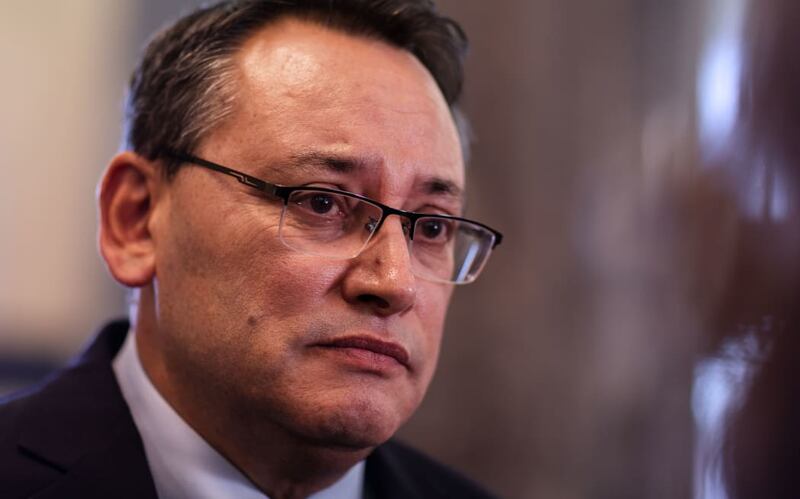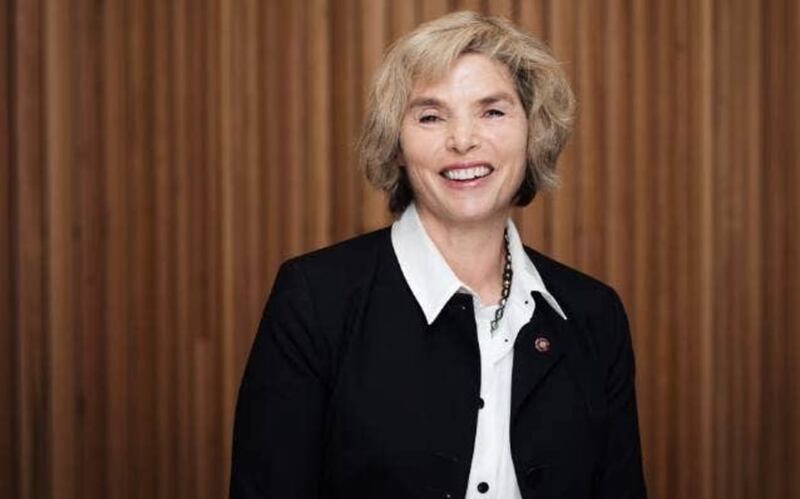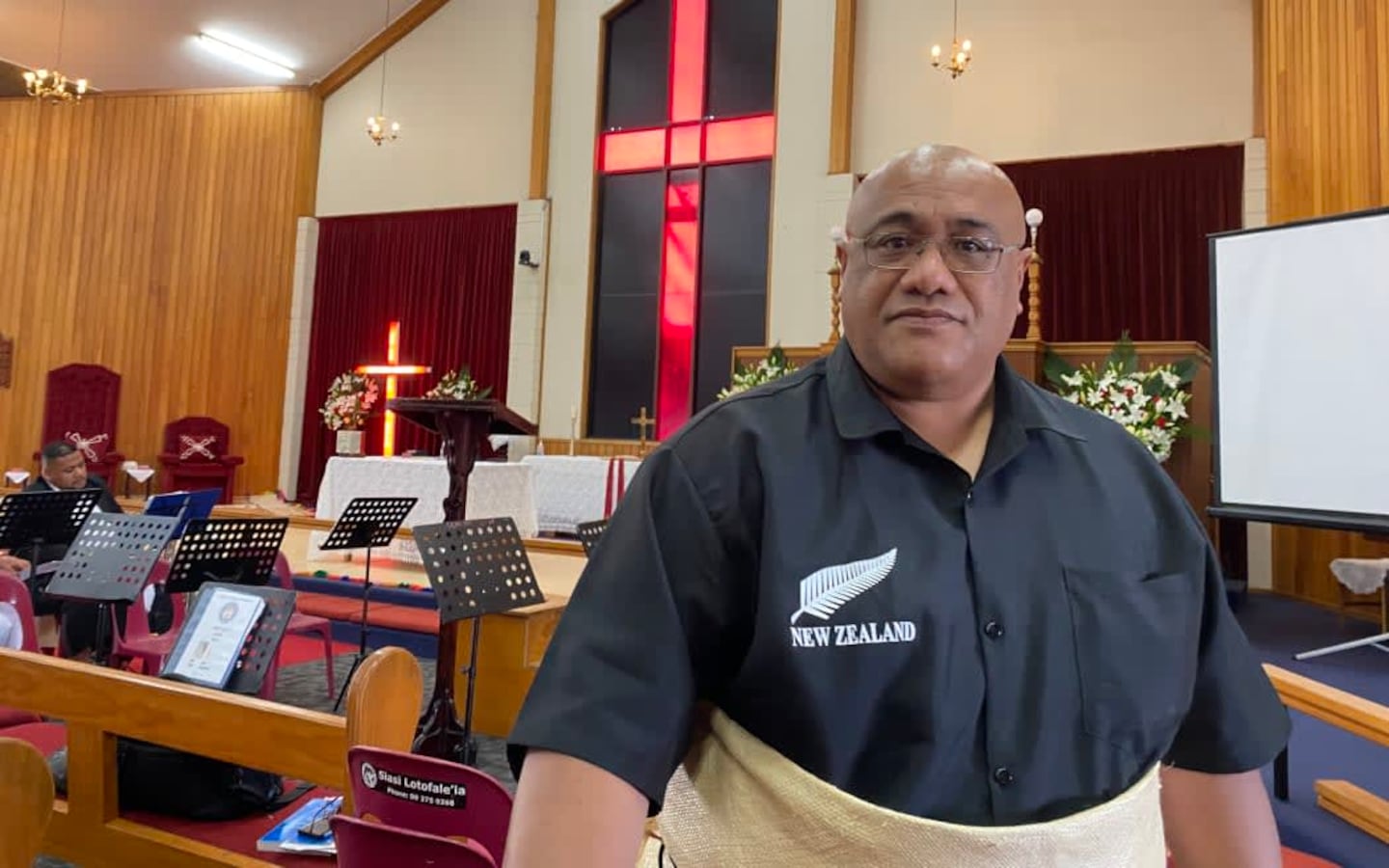A Tongan community leader says he’s “saddened” and “appalled” by the New Zealand government’s decision to review the Treaty of Waitangi and scrap anti-smoking laws, which would disproportionately impact Māori and Pasifika.
Minister for Health and Pacific Peoples Dr Shane Reti (Ngāti Wai, Ngāti Maniapoto), said Pasifika “should be encouraged that Prime Minister Christopher Luxon placed a very senior person at the helm of the ministry”.
“That sends a signal,” he said.
However, community leader Pakilau Manase Lua said the government was so far “sending all the wrong signals”.
“I am sure Minister Reti will look at this very closely and reflect better on some of these decisions that have been made because the statistics don’t lie,” Lua told RNZ Pacific.
“It is our people suffering who are suffering the most in terms of those negative indicators.”
Lua calls on the government to “listen to the people and walk back its terrible ideas”.
He said the coalition government had a lot of work to do to win over Pasifika people, with many decisions being seen as going against Māori sovereignty and did not sit well with Lua’s Tongan community.
“Regardless of which coalition partner is driving this harmful rhetoric, Christopher Luxon as Prime Minister needs to rein it back,” he said.

“He’s in charge and he needs to put his foot down and maintain the gains made over the years for Pacific and Māori people.”
He said the government must act fast and make “quick wins” if it wants to “earn the trust of Pacific people.”
He was also disappointed the principles of Te Tiriti o Waitangi, or Treaty of Waitangi, which upholds Māori rights, including the right to autonomy were being reviewed.
“Pasifika are mobilising and standing with Māori. Many of us are out there protesting with Māori too.”
Smoking legislation
Reacting to the government’s smoking laws, Lua said there was a perception of profits being put before the health needs of vulnerable people.
When asked about the harm to Pacific and Māori communities from New Zealand’s smoking legislation, Dr Reti said he was not “responsible” for the “piece of legislation which was now in the hands” of Associate Health Minister Casey Costello of NZ First.
“I think what is good is an ambition to continue to drive down smoking rates and that is an ambition this government has,” Dr Reti said.
Medical practitioners concerned
Doctors and medical practitioners including the New Zealand Council of Medical Colleges (representing 17 medical colleges) are concerned about the government’s plan to repeal the Smoke Free Environments Act and Regulated Products Act.
Council of Medical Colleges chair Dr Samantha Murton has over two decades of medical experience.
She told RNZ Pacific the New Zealand government must not ignore pre-existing inequities for many Māori and Pasifika patients.
Dr Murton said it puts Pacific and Māori health at further risk and would cost the lives of thousands of Māori a year. Māori have the highest rates of smoking.
The council also opposed the government’s plan to abolish the Māori Health Authority/ Te Aka Whai Ora.

However, Dr Reti wanted to change the way the Māori Healthy Authority was a “centralised entity with all the funding in Wellington on a ‘Wellington knows best philosophy’.
He said the reasoning for disestablishing the authority was because the funding was too “centralised” in Wellington and to move funding and resources closer to the “homes and hapū to deliver services to their own communities”.
Lua said, “it is ironic that the government has been complaining about not being given a chance, having only just begun [its term]. But the same can be said about health ministry, it had only been going for a year.”
Minister Reti agrees that a targeted health approach worked best for the needs of Māori and Pacific patients.
“Distribution must first be predicated by need. It turns out that Māori and Pasifika can have some of the greatest need,” Reti said.
Ambitions
Dr Reti has been an MP since 2014 and National’s Pacific Peoples spokesperson on the opposition benches since 2021.
He has promised to focus on getting “tangible outcomes” for Pacific communities.
In his first week as Minister for Health and Pacific Peoples, he said he was “passionate” about seeing Pasifika “flourish” over the next three years of government.
Increasing the rates of immunisations is one of his main priorities and working with Pacific community and faith-based leaders.
“My style is people focused,” Dr Reti said.
He gave credit to Pacific leaders for paving the way with Covid-19 vaccination rates.
Dr Reti understood the importance of “hearing from and building relationships” with Pacific people across New Zealand.
Pacific people in Aotearoa make up over 8 percent of the population and contribute over $8 billion to the economy.
The National Party does not have any MPs with Pacific heritage.
However, Dr Reti is Māori and was a family GP for 16 years before serving on the Northland District Health Board for three terms.
Meanwhile, Dr Reti said he was being briefed by the Ministry of Pacific Peoples about language weeks and recognised the significance of these events to Pacific communities across New Zealand.

